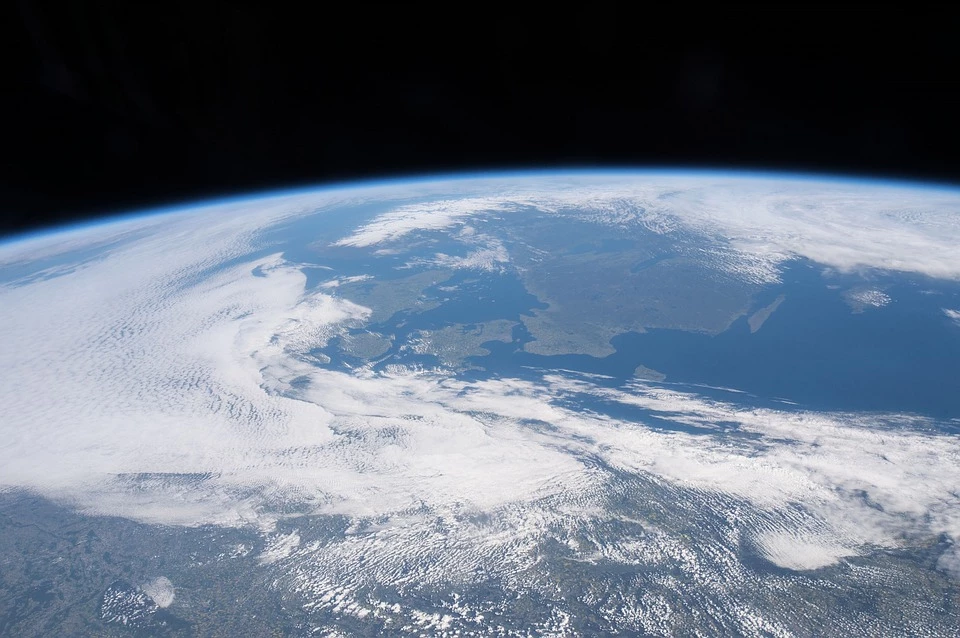
‘Reset moment for humanity’: Earth Day 2020 in the era of COVID-19
This year’s Earth Day (April 22) falls during what has been repeatedly referred to as an ‘unprecedented time’ in history.
The COVID-19 pandemic has affected the entire world, with global economies thrown into uncertainty and businesses forced to slow down or halt operations completely.
However, it would appear that the coronavirus outbreak has had some unexpected environmental benefits, with reports of reduced pollution levels and emissions as a result of decreased traffic and industrial waste.
Bdaily reached out to the business community to ask what it feels should be firms’ main priorities for sustainability in 2020 and beyond.
Kai Feller, CEO and founder of Bark.com
“It’s the 50th anniversary of Earth Day and it’s now more important than ever to ask ourselves as small business owners, what is our impact on the environment?
“Furthermore, what is its impact on us? With the COVID-19 outbreak being the global priority it’s easy to forget about other pressing issues, however, climate change is still impacting us and businesses across the world need to have this matter front-of-mind.
“Physical distancing has forced organisations of all sizes to adapt to remote and virtual ways of working - we’ve seen a spike in requests for web designers as more and more businesses make the journey from offline to online.
“Entrepreneurs are now more geographically dispersed than ever, increasingly setting up their own businesses from rural areas.
“This global migration to digital has created a significant drop in the amount of people commuting and travelling for business, it’s opened up a lot of opportunity to demonstrate how we effectively manage remote/virtual working.
“We’ve proven that we can work in a more eco-friendly way and showcased how quickly we can cut down our carbon footprint when push comes to shove. If there’s one thing that businesses should take from this otherwise disruptive situation - it is the ability to work more sustainably and help prevent climate change.”
Grace Regan, founder of SpiceBox
“I started SpiceBox because I wanted to help make a positive impact on the world, therefore sustainability through the core of the business. This starts with our food, which is 100 per cent vegan.
“A vegan diet can reduce a person’s carbon footprint by up to 73 per cent so there are serious environmental benefits to eating more plants! At SpiceBox, we don’t intend to turn anyone vegan, but rather show people how delicious plant-based food can be and encourage them to eat a few more vegan meals a week. Spices are a great way to get the most out of vegetables!
“I am also conscious that veganism isn’t a silver bullet. The use of pesticides and fertilizers in industrial agriculture is a huge environmental problem. This is why we’ve committed to making 50 per cent of the SpiceBox plate organic. We are well on our way to achieving this.
“The restaurant industry produces a lot of waste, from food, to clingfilm, to takeaway packaging. Producing all these materials creates harmful emissions and so we need to ensure we extend the life cycle of these materials as much as possible.
“We therefore recycle 75 per cent of all our waste and send nothing to landfill (what can’t be recycled is burnt for energy). It’s our goal to get this up to 80 per cent this year and a personal dream of mine to become a fully circular curry house!
“In short, I don’t think you can have a business in 2020 without taking responsibility for its impact on the environment. Business can be a huge force for good and can play a significant role in helping reverse the climate crisis, as long as consumers, investors and leaders keep applying the pressure!”
David Craig, CEO of Refinitiv
“The pandemic is clearly providing humanity with a reset moment: a stark reminder about our fragility as a species and a sharp lesson about what happens when we mess with nature.
“It is also a moment when the old rules about the role of the state no longer apply. We can therefore attack the twin challenges of COVID-19 and climate change simultaneously, not sequentially.
“After all, when again will we be at a moment when governments are injecting such unprecedented sums into the economy just as the world needs up to $7 trillion a year of renewable investments to hit 2030 development and climate targets.”
Looking to promote your product/service to SME businesses in your region? Find out how Bdaily can help →
Enjoy the read? Get Bdaily delivered.
Sign up to receive our popular morning National email for free.




 test article 123456789
test article 123456789
 hmcmh89cg45mh98-cg45hm89-
hmcmh89cg45mh98-cg45hm89-
 test456456456456456456
test456456456456456456
 test123123123123123123
test123123123123123123
 test xxxdiosphfjpodskhfiuodsh
test xxxdiosphfjpodskhfiuodsh
 Savour the flavour: North Tyneside Restaurant Week returns for 2024
Savour the flavour: North Tyneside Restaurant Week returns for 2024
 Six steps to finding the right buyer for your business
Six steps to finding the right buyer for your business
 Stephen signs off on a special night
Stephen signs off on a special night
 Life’s a Peachaus: Gillian Ridley Whittle
Life’s a Peachaus: Gillian Ridley Whittle
 Making a splash: Phil Groom
Making a splash: Phil Groom
 Making workplace wellbeing a priority
Making workplace wellbeing a priority
 A record of delivery, a promise of more: Ben Houchen
A record of delivery, a promise of more: Ben Houchen